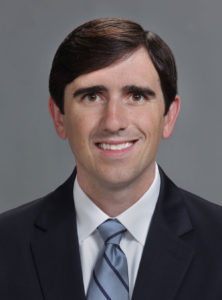Shoulder Fracture Specialist

Are you an athlete who participates in contact sports? If so, you may be at risk of sustaining a shoulder fracture. A shoulder fracture is commonly caused by sudden force, impact or trauma to the joint during sports activities or a hard fall. Shoulder fracture specialist, Dr. Robert Boykin provides diagnosis and both surgical and nonsurgical treatment options for patients in Asheville who have suffered a shoulder fracture. Contact Dr. Boykin’s team today!
Broken Shoulder Overview
A fracture of one of the shoulder bones refers to a crack or break in the bone that is typically sustained as a result of a traumatic injury. “Simple” or closed fractures are those where the bone is broken but does not break through the skin, whereas “compound” or open fractures are cases when the bone has broken through the skin and is visible from the outside. A fracture in the shoulder is usually caused by a traumatic event via a direct hit to the shoulder in a sporting accident, a car accident, a hard fall, etc. A shoulder fracture will be classified based on the bone which is involved and severity of the injury to the bone (including number of pieces, separation of the bones (displacement) and how much the bones are bent (angulation). Shoulder specialist, Dr. Robert Boykin specializes in the treatment of shoulder fractures for patients in Asheville, Arden, Fletcher and surrounding North Carolina communities.
There are three bones that work together to form the shoulder joint, and any of the three are susceptible to a fracture. These bones include the collarbone (clavicle), the upper arm bone (proximal humerus), and the shoulder blade (scapula).
Symptoms of Broken Shoulder
The symptoms associated with a shoulder fracture are typically easily recognized. These are immediate pain after a traumatic injury and in some cases deformity of the joint and/or exposed bone. Other common symptoms may include nausea and vomiting, severe bruising and swelling, the inability to move the shoulder, or numbness and tingling in the hand. In severe injuries, the bone will protrude from the skin and will be associated with bleeding.
How to Diagnose a Shoulder Fracture
A shoulder fracture is usually able to be diagnosed with a thorough history, physical exam, and a series of X-rays. Dr. Boykin may also order a CT scan or a MRI in cases of complex injuries or those that are difficult to see on an X-ray.
Many shoulder fractures can be treated without surgery, and will yield good outcomes for patients. In these types of shoulder fractures, Dr. Boykin will most likely use a stabilization sling to prevent movement of the shoulder while the fracture heals. Dr. Boykin will also prescribe appropriate medications, as well as a protocol that includes ice, rest, and eventually physical therapy. In general, fractures typically heal by the 3 month mark and patients are allowed to gradually resume their activities.
Surgical Treatment for a Shoulder Fracture
Depending on the severity of the fracture, location, and associated injuries, a shoulder fracture may need to be repaired through surgery. These include all cases of “compound” (or open where the bone has pierced the skin) fractures, fractures with significant separation of the bones, and complex fractures involving the joint surface of the shoulder.
Dr. Boykin may choose to perform surgery with the use of hardware such as pins, plates, or rods in order to hold the bone in place until it fully heals. He may perform open reduction and internal fixation that requires opening up the skin at the fracture, realigning the bones, and then plating or pinning the fracture together. In other cases he may be able to fix the fracture percutaneously (through the skin without opening it) or use arthroscopic techniques (with small incisions, a camera, and specialized instruments) to perform the fixation. In some cases the hardware may be left in forever while in other situations the hardware may be removed once the bone is healed. Dr. Boykin will recommend the appropriate surgery for the specific injury presented.
For additional resources regarding shoulder fractures and shoulder surgery, please contact Dr. Robert Boykin, Orthopedic Shoulder Surgeon serving Asheville, Arden, Fletcher and surrounding North Carolina communities.
